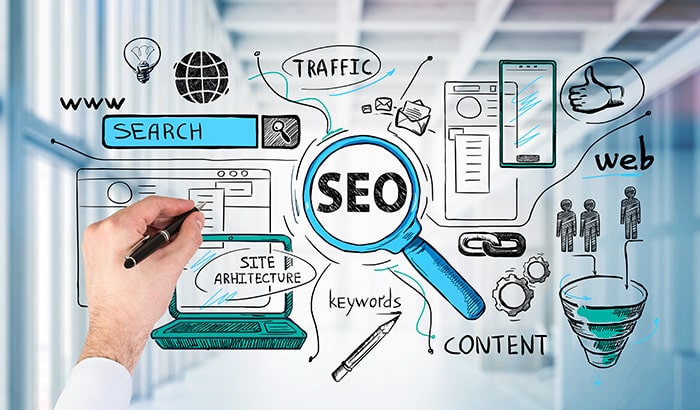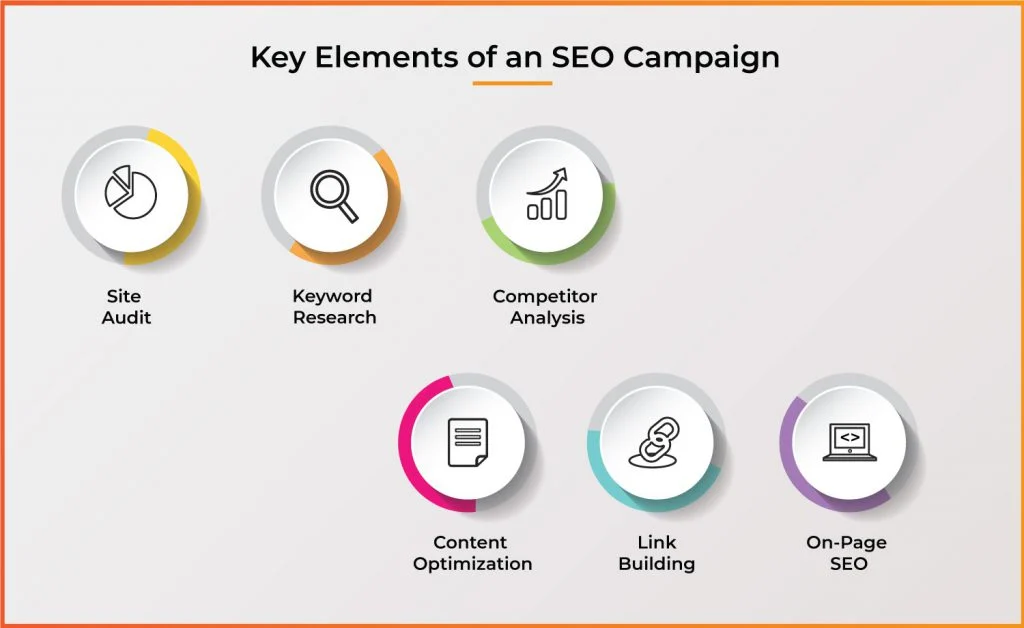SEO vs. Search Engine Marketing: Which Strategy Will Propel You to the Top 2024

In today’s digital landscape, standing out online is crucial for businesses and individuals alike. If you’ve ever wondered how to boost your visibility on search engines, you’ve likely come across two key terms: SEO and Search Engine Marketing (SEM). Both strategies aim to increase your online presence, but they do so in different ways. Which one should you choose to propel yourself to the top? Let’s investigate the intriguing realm of SEO vs. Search Engine Marketing!
What is SEO?
Search Engine Optimization, or SEO, is all about enhancing your website’s visibility in organic search results. Imagine you own a small bakery. You want people searching for “best chocolate cake near me” to find your bakery right at the top of the results. That’s where SEO vs. Search Engine Marketing comes in! It involves optimizing your site’s content, structure, and technical aspects to rank higher in search results without paying for ads.
Key Elements of SEO

- Keyword Research: Finding the right keywords to target is essential. Think of it as picking the right ingredients for your cake.
- On-Page SEO: This comprises optimizing the HTML source code and content of your website.
- Off-Page SEO: Building backlinks from other websites to enhance your site’s authority.
- Technical SEO: Ensuring your website runs smoothly, with fast loading times and mobile-friendliness.
Understanding Search Engine Marketing
Paid search engine advertising is known as search engine marketing, or SEM. It’s like renting a billboard in a high-traffic area to get noticed quickly. With SEM, businesses pay to have their ads displayed when users SEO vs. Search Engine Marketing for specific keywords. This method can provide immediate visibility and attract traffic almost instantly.
Key Components of SEM
- Pay-Per-Click (PPC): Advertisers pay each time someone clicks on their ad.
- Ad Campaign Management: Creating and managing effective ad campaigns to target specific audiences.
- Landing Pages: Directing users to specific pages designed to convert visitors into customers.
The Key Differences Between SEO and SEM

Understanding the differences between SEO and SEM is like knowing the difference between planting seeds and buying fully-grown plants. While both aim to increase visibility, they do it in fundamentally different ways.
SEO vs. SEM: A Quick Overview
- Cost: SEO is often more cost-effective in the long run, while SEM involves ongoing expenses.
- Time: SEO takes time to show results, while SEM can provide immediate traffic.
- Sustainability: SEO efforts can lead to long-lasting results, whereas SEM stops when you stop paying.
Benefits of SEO
- Cost Efficiency: Once your SEO strategy is established, the ongoing costs can be minimal compared to SEM.
- Credibility and Trust: Organic search results are often viewed as more credible by users than paid ads.
- Better User Experience: Optimizing your website often leads to improved user experience.
Advantages of Search Engine Marketing
- Fast Results: SEM is the best option if you require quick visibility.
- Targeted Traffic: You can target specific demographics, locations, and interests.
- Easier Testing: It’s simpler to test different ads and campaigns to find out what works best.
Long-term vs. Short-term Strategies
When considering SEO vs. Search Engine Marketing, think about your goals. If you need fast results for a product launch, SEM may be the best choice. However, for sustainable growth over time, SEO is crucial. It’s like choosing between a quick sugar rush and a balanced diet for long-term health.
Cost Considerations
When budgeting for your online strategy, keep in mind:
- SEO Costs: These may include hiring experts, tools, and ongoing content creation.
- SEM Costs: Involves regular payments for ads, which can add up quickly.
Finding a balance between these costs and your expected return on investment (ROI) is essential for success.
Target Audience Engagement
Both strategies require understanding your audience. SEO vs. Search Engine Marketing focuses on attracting users searching for specific information, while SEM targets users based on behavior and interests. Knowing who your audience is can help you decide which method will work better for your goals.
Measuring Success
Success in both SEO and SEM can be measured using various metrics:
- SEO Metrics: Organic traffic, keyword rankings, and conversion rates.
- SEM Metrics: Click-through rates, cost per click, and overall ROI.
By analyzing these metrics, you can adjust your strategies for better performance.
When to Use SEO
Consider using SEO when you want:
- Long-term results.
- To build authority in your niche.
- A cost-effective approach to online marketing.
When to Use SEM
Use SEM when you need:
- Immediate visibility.
- A targeted approach for specific campaigns or products.
- To test different marketing messages quickly.
The Perfect Combination

Combining SEO and SEM is often the best course of action. While SEM can bring immediate results, SEO builds a foundation for long-term success. Think of it like having both a strong brand presence and a clever advertising campaign—it’s the best of both worlds!
Common Myths about SEO and SEM
- SEO is Dead: Not true! SEO continues to evolve and is essential for online visibility.
- SEM is Just for Big Businesses: Small businesses can benefit greatly from SEM by targeting local markets.
- SEO Takes Too Long: While it requires patience, the long-term benefits are invaluable.
Future Trends in SEO and SEM
As technology advances, so do the strategies in SEO and SEM. Trends to watch for include:
- Increased importance of voice search.
- Greater focus on mobile optimization.
- Evolving algorithms that prioritize user experience.
Staying ahead of these trends will be crucial for your online success.
Conclusion
In the battle of SEO vs. Search Engine Marketing, there is no one-size-fits-all answer. Your decision will be based on your timetable, finances, and goals. . While SEO builds a robust online presence over time, SEM offers immediate visibility. Often, a blend of both strategies works best. So, which strategy will you choose to propel you to the top?
Frequently Asked Questions
What is the main difference between SEO and SEM?
SEO focuses on organic search results, while SEM involves paid advertising.
Which is more cost-effective, SEO or SEM?
SEO is generally more cost-effective in the long run, while SEM incurs ongoing costs.
How long does it take to see results from SEO?
Results can take several months, depending on various factors like competition and optimization efforts.
Can I use both SEO and SEM simultaneously?
Yes, many businesses benefit from combining both strategies for optimal results.
What should I focus on first, SEO or SEM?
It depends on your immediate needs. If you want quick results, start with SEM; for long-term growth, focus on SEO.




One Comment